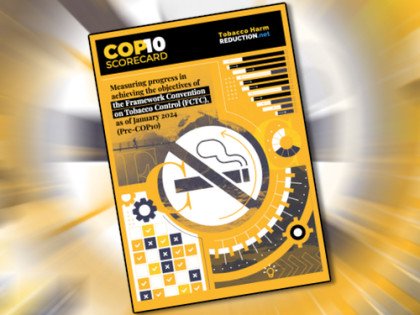WHO opened the report with statements regarding the promotion of ecigs: “Marketing is back on television and radio” and “Aggressive placement in convenience stores (next to candy) and in other stores (next to medications)”.
The team pointed out that the language chosen is of an emotive nature, not scientific. They highlight that no evidence has been presented – but also that a key factor in convincing smokers to quit is for health reasons, not advertising. One wonders how you aggressively place something in more than one location at the same time.
The team attacked the WHO report for promoting the notion that young people are flocking to electronic cigarettes in droves: “Youth are rapidly adopting e-cigarettes.” They reminded the World Health Organisation that all current evidence states that: “use of e-cigarettes in non-smoking youth is very low and there is currently virtually no regular use in children who have never smoked or never used tobacco.”
The gist of the WHO report is one geared to scaring people away from quitting through the use of electronic cigarettes based on emotive not scientific rationale. They suggest that causality is implied linking vaping to heavy smoking rather than the idea that heavy smoking youth might be adopting vaping in order to quit.
Regarding flavours, the team say: “The listing of flavours has the appearance of being a polemic device to arouse an emotional reaction. A study of adult e-cigarette users suggests that flavours are important in efforts to switch from smoking to e-cigarette use and to remain smoke-free.”
The WHO maintains a position that claims there is no evidence to prove that vaping helps people quit smoking. As a person reading this piece on a forum dedicated to vaping, with 18,894 members who have almost all quit smoking through the use of electronic cigarettes, you might feel that this anecdotal evidence is pretty strong proof.
The authors think so too, but add reference to a “consistent picture emerging from a variety of studies using different designs, that e-cigarettes can help smokers to stop.” They highlight that one of the two ‘studies’ used by the WHO to justify this position relied on calls to a quitline and a question along the lines of: “Have you tried using ecigs to quit in the past?” Clearly, those who successfully quit using ecigs would not be calling a quitline and were ignored by the flawed research.
The WHO report repeats the fears that dual-users have not quit and therefore lack the desire to do so because ecigs facilitate them to continue smoking. The authors remind the body that there is a correlation between the number of cigarettes smoked and a decrease in mortality. On the POTV forum you will often see this paraphrased as “it is not the cigarettes you smoke, it’s the ones you don’t.”
The WHO still seeks to perpetuate the myth that as vaping is not toxin-free that is bad – and that it therefore pollutes the air. The authors point out that it is not the presence of toxins in vape but the relative volumes and the manner of delivery that are of importance...and that being orders of magnitude safer is what is of utmost importance.
There is ample research evidence demonstrating that exhaled vapour poses no risk whatsoever to third parties. The microparticles of carbon, metals, acids and organic substances from tobacco smoke are simply not present in a non-combusted cloud.
They concluded by stating: “The language of the report, the selective use and misrepresentation of evidence is problematic in a major policy-relevant document. Policymakers and the public require scientists to present evidence objectively, and when they offer unsubstantiated opinions, scientists should make it clear that this is what they are doing.”
Who report references:
- Grana R., Benowitz N., Glantz S. A. Background Paper on E-cigarettes (Electronic Nicotine Delivery Systems). WHO report. Geneva: World Health Organization; 2013.
- Grana R., Benowitz N., Glantz S. A. E-cigarettes: a scientific review.
Dave Cross
Journalist at POTVDave is a freelance writer; with articles on music, motorbikes, football, pop-science, vaping and tobacco harm reduction in Sounds, Melody Maker, UBG, AWoL, Bike, When Saturday Comes, Vape News Magazine, and syndicated across the Johnston Press group. He was published in an anthology of “Greatest Football Writing”, but still believes this was a mistake. Dave contributes sketches to comedy shows and used to co-host a radio sketch show. He’s worked with numerous start-ups to develop content for their websites.
Join the discussion
COP10: Use The Evidence
The Coalition of Asia Pacific Tobacco Harm Reduction Advocates demands an evidence-based approach to tobacco harm reduction from the World Health Organisation and the Framework Convention on Tobacco Control
The COP10 Scorecard
Dr Derek Yach and Tobacco Harm Reduction.net have released a COP10 Scorecard report, drawing upon recent World Health Organization (WHO) reports to assess progress made by Parties to the Framework Convention on Tobacco Control (FCTC)
CAPHRA Repeats Call For Transparency
Consumer body CAPHRA has repeated calls for greater transparency and engagement from World Health Organisation Framework Convention on Tobacco Control officials
WHO Incompetence Exposed
Member states, science, experts, and consumers are being disrespected and ignored according to the Coalition of Asia Pacific Tobacco Harm Reduction Advocates












